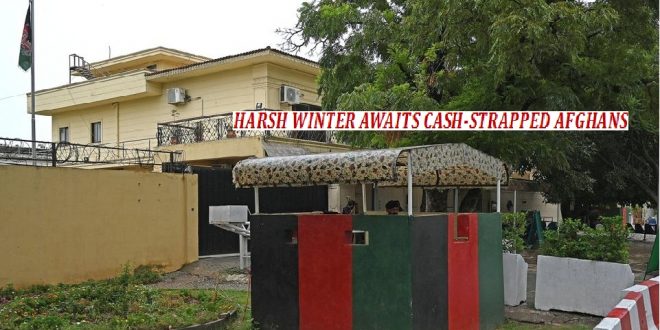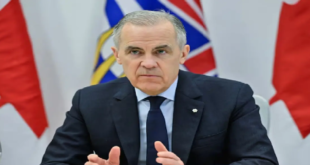30-10-2021
By SJA Jafri + Bureau Report + Agencies
 ISLAMABAD/ PESHAWAR/ UNITED NATIONS: KABUL: The Taliban government has sent an envoy to run the Afghan embassy in the Pakistani capital, senior Taliban sources said, as the new administration starts to take over Afghanistan’s network of foreign delegations.
ISLAMABAD/ PESHAWAR/ UNITED NATIONS: KABUL: The Taliban government has sent an envoy to run the Afghan embassy in the Pakistani capital, senior Taliban sources said, as the new administration starts to take over Afghanistan’s network of foreign delegations.
Mohammad Shokaib was appointed first secretary or charge d’affaires at the embassy, which has not had an ambassador in place since the previous Western-backed government withdrew its envoy in July over the alleged kidnapping of his daughter.
As Pakistan does not officially recognise the new Taliban government, Shokaib will not have the formal title of ambassador but will be in charge of the embassy to help supervise visa issuance and other functions, the sources said.
In addition, two officials were appointed to run the consulates in the Pakistani cities of Quetta and Peshawar, close to the two major border crossings with Afghanistan.
“We understand that Pakistan has not yet recognized us as a legitimate government but we made these arrangements for public facilitation,” a senior Taliban leader told Reuters on condition of anonymity.
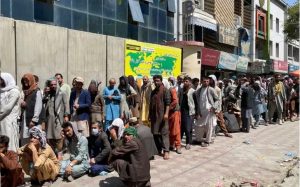 No comment was immediately available from the foreign ministry in Islamabad or from Taliban spokesmen in Kabul.
No comment was immediately available from the foreign ministry in Islamabad or from Taliban spokesmen in Kabul.
Two other Taliban officials in the foreign affairs and interior ministries confirmed the appointment to Reuters and said similar arrangements had been made in Qatar and the United Arab Emirates.
No country has given formal recognition to the Taliban, who ousted the Western-backed government in Kabul in August, and Afghanistan’s embassies are largely still run by ambassadors appointed by the previous government, many of whom are outspoken critics of the Taliban.
Meanwhile, in its latest report to the United States Congress, the Special Investigator General for Afghanistan Reconstruction (SIGAR) has detailed Washington’s decision to cut off the Taliban government’s access to billions in funds and assets that has led to devastation across the cash-strapped nation.
The top watchdog report says that over the 20-year US occupation, Washington spent $146bn in Afghanistan’s reconstruction, including $89bn on training and supporting the country’s National Security Forces “which no longer exists”.
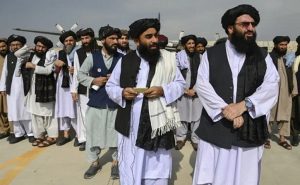 The report goes on to say that “other reconstruction objectives, such as to assist women and girls or to establish the rule of law, are under direct threat from the new Taliban regime”.
The report goes on to say that “other reconstruction objectives, such as to assist women and girls or to establish the rule of law, are under direct threat from the new Taliban regime”.
After the Taliban toppled the Western-led government in the middle of August, the US, along with international bodies including the World Bank and the International Monetary Fund (IMF), decided to cut off Afghanistan’s access to more than $9.5bn in assets and loans.
The decision has had a devastating effect on Afghanistan’s healthcare and other sectors, all of which are struggling to continue operations amid cutbacks to international aid.
According to the World Bank, approximately 14 million people, one out of three Afghans were on the brink of starvation due to the aid cuts until the end of the last month.
Sulaiman Bin Shah, the former deputy minister of Industry and Commerce, said the decisions by the US, World Bank and IMF led to more engagement by the United Nations and the European Union in the humanitarian crisis unfolding in Afghanistan.
“The UN immediately went into action and restarted its efforts. That did a lot for UN’s image and its perception among the Afghan people,” Bin Shah told PMI from Kabul.
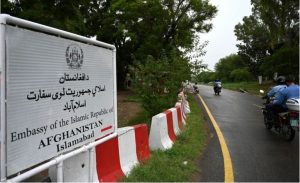 Likewise, he cited last week’s announcement by the EU to reopen its embassies in Kabul in November. “That was one of the few positive developments out of all this,” Bin Shah said.
Likewise, he cited last week’s announcement by the EU to reopen its embassies in Kabul in November. “That was one of the few positive developments out of all this,” Bin Shah said.
Limit on bank withdrawals
However, with the harsh winter fast approaching, Bin Shah said the Afghan people “are paying a huge price because of the slow pace of diplomatic processes and negotiations”.
Immediately after the Taliban takeover of Afghanistan, most banks, which were already dealing with an enormous rush of people desperate to withdraw their money, shut their doors. It took them weeks to reopen.
When they did, the banks placed a $200 weekly limit on withdrawals, which led to long queues of men and women waiting outside for hours, if not days, to withdraw as much as cash as they could.
Bin Shah is worried that Afghanistan’s economic development may be affected in a cash-driven economy. “Nobody is presenting a comprehensive view on how the future of Afghanistan’s economic future will look,” he said.
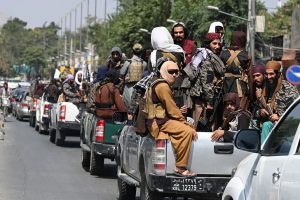 Other Afghans, including those abroad who are still trying to send aid and services into the nation, say the cutbacks and lack of a clear economic plan have greatly inhibited their ability to reach the needy.
Other Afghans, including those abroad who are still trying to send aid and services into the nation, say the cutbacks and lack of a clear economic plan have greatly inhibited their ability to reach the needy.
Makiz Sherzai, an Afghan-American who has worked with international aid agencies in Kabul, said the limits imposed by banks and other financial services have made it difficult even for Afghans abroad to try and help their people, including their own families, back home.
Sherzai provides the example of a recent food drive she had set up with financial assistance from other Afghans in the US.
“I only needed to send a couple of thousand dollars, but I wasn’t able to send it directly to the person who was doing the food drive in Afghanistan,” Sherzai said.
That forced her to find a circuitous route to get the money into the country. “I had to send it to someone in Europe, then that person sent it to someone in Pakistan and from there the funds reached the person in Afghanistan.”
In the past, Sherzai and other Afghans abroad would simply send money through Western Union or Moneygram. But both the services have placed the same $200 limit on transfers into the country.
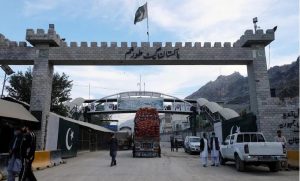 Some Afghans living in California, US told Al Jazeera they were turned away from Western Union while trying to send money to friends and relatives in Afghanistan.
Some Afghans living in California, US told Al Jazeera they were turned away from Western Union while trying to send money to friends and relatives in Afghanistan.
“They told us: ‘We can’t transfer money to Afghanistan because the banks told us they have no money to give out’,” said an Afghan-American woman, who did not wish to be identified.
Women, children suffer
Sherzai said seeing Afghan “children starve to death from afar is absolutely heartbreaking”.
She wants to start another fundraiser to provide food, blankets and warm clothes for children as temperatures across the country continue to drop, but figuring out how to send money to Afghanistan is a “major challenge”.
Masuda Sultan, an Afghan-American entrepreneur who has worked with organizations trying to aid Afghanistan’s women, said the freezing of funds is especially disconcerting because NGOs such as USAID had allocated resources to Afghans, not the Taliban’s Islamic Emirate.
“We should look for ways to get the help to them, no matter who their government is. We work with governments all over the world who we don’t agree with or like,” Sultan said.
 Bin Shah agrees with that assessment, saying the people of Afghanistan are dealing with “unparalleled uncertainty” and fear what may befall them if the current financial system, though flawed, were to fall as well.
Bin Shah agrees with that assessment, saying the people of Afghanistan are dealing with “unparalleled uncertainty” and fear what may befall them if the current financial system, though flawed, were to fall as well.
“This is the system we have now, and if it were to be toppled, we don’t know what would come in its place, or if it would be worse than even this.”
This fear is why Bin Shah says the international community must “find a way to work with the system to ensure that the Afghan people aren’t the ones to continue to pay the price for a government few outwardly support”.
Sultan is especially fearful that any delay in financial assistance to Kabul will roll back any gains the 20-year foreign presence led to, something SIGAR also referred to in its report.
SIGAR said the US Department of State and USAID intended “to condition future reconstruction assistance in Afghanistan to ensure continued progress for Afghan women and girls”.
“USAID has done incredible work in Afghanistan and investments in girls’ education and women and children’s health are cited as the brightest spots of American intervention,” Sultan told media.
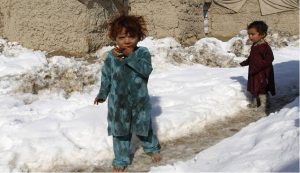 There are already signs that any progress made on restoring women’s rights may be curtailed under the Taliban’s Islamic Emirate.
There are already signs that any progress made on restoring women’s rights may be curtailed under the Taliban’s Islamic Emirate.
Though small groups of women in cities such as Kabul, Herat and Zaranj continue to hold protests calling for their right to work and education, as well as their inclusion in the government, recent decisions by the Taliban have done little to increase the people’s confidence.
It has now been more than a month that teenage girls have not been allowed to return to school. Taliban leaders have also sent mixed signals on women returning to work. Shortly after taking power, they asked all female government workers to stay home until they are sure the group’s fighters on the ground will not pose a security threat to those women.
Sultan said it is imperative to get the international community to see the scale of the humanitarian crisis in the country, and that the cutbacks to funds are affecting teachers and healthcare workers, not so much the Taliban leadership.
“I am terrified that they are all asleep at the wheel as the humanitarian needs grow,” he said.
 Pressmediaofindia
Pressmediaofindia
